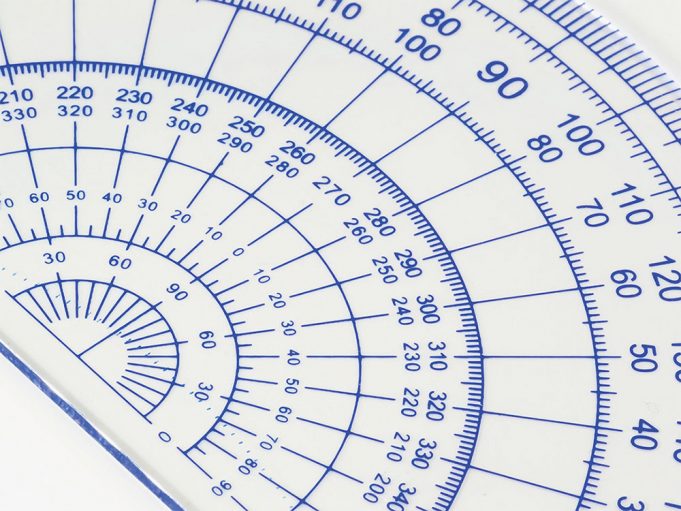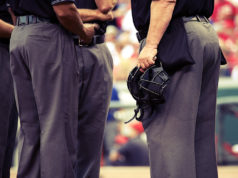There is one thing I find more important than all others in getting my calls on the field and on the court correct: the angle.
Referees and umpires know the importance of angle better than anyone, with the possible exception of professional billiards players. Yet many of us don’t realize that the optimal angle is crucial in other aspects of life, including with friends, family, bosses and colleagues at the workplace. Just as in officiating, seeing things from the right perspective makes life’s decisions easier and consistent.
The concept of angles is easy to explain to non-officials. Casual TV sports fans have seen a swipe tag on a steal of second base. They’re unsure if a football player’s knee was down before a fumble. There are often three or more camera angles on the play. The first two angles may be inconclusive or even make viewers certain of something that is flat-out false. Only when the best angle is shown is the truth revealed.
This is nothing revolutionary. James Deacon, an 18th century artist, said, “What you see depends not only on what you look at but also where you look from.”
I once watched slow-motion video of President George W. Bush shaking hands in a crowd. After shaking one man’s hand, the watch the president was wearing on his right wrist disappeared. A second camera angle left me certain that the president’s watch had been stolen. Only a third camera angle revealed that President Bush removed his own wristwatch and left-handed it backward to a Secret Service agent while continuing to shake hands with his right. Had that third camera angle not existed, an innocent man might have gone down as a presidential watch thief.
Show me an official with good judgment and I’ll show you an official who strives for the best angle. Being close to a play is better than being afar, but we’ve all been wrong with our noses on the ball and we’ve been right from 40 yards away. When an umpire goes out to cover a sinking line drive, running directly at the fielder to get closer causes straight-lining. The best practice is to sacrifice distance to get an angle that lets us see if the ball skips the ground in front of the glove.
If I think my partner may have missed a call, the first thing I look for is his/her position. I look to see if my partner had the angle. When I’m uncertain of my own call, I consider my angle. And, when a coach complains that I missed one, I find myself comparing his/her angle relative to mine.
Angle is important enough to cover in pregame. In postgame, I like to recall a play where I may have had an imperfect angle, what might have caused it, and if there is anything I can do to correct it next time.
Poor angle, or perspective, in our business and personal lives can also leave us believing in falsehoods. Or, as Mark Twain said, “It ain’t what you don’t know that gets you into trouble. It’s what you know for sure that just ain’t so.” Twain must have lost a bar bet or two.
I’ve too often been certain of things that ain’t so. Surveys say that 80 percent of us think we are above-average drivers and 80 percent believe we are more moral than the average person. Many of us obviously have false perspectives.
Raising two children has changed my perspective on several things. My wife has different perspectives that can be so maddening it sometimes leads to arguments. Of course, I’m right. Until I’ve had time to reflect and consider her superior angle. As with TV cameras, two human perspectives are better than one, which is why sports officials come together to get difficult calls correct.
Officials say that the game slows down for them the more experience they gain. They begin to see more in a split second and make correct calls that beginners miss. For me, experience gives me the tools to slow down the complexity of life and maneuver for a better look. Angles, I believe, are a key to mature workplace and family judgment.
I try to get better at angles each season, but I’ll continue to be trapped with imperfect angles on the field and off. Maybe it’s because I’m seeing circles and squares in a world of cylinders and cubes.
Somebody once asked Chinese leader Zhou Enlai his thoughts on the French Revolution. He said, “It’s too early to tell.” To obtain the right angle on one’s life, on the field of play — even on history — takes a long time.
What's Your Call? Leave a Comment:
Note: This article is archival in nature. Rules, interpretations, mechanics, philosophies and other information may or may not be correct for the current year.
This article is the copyright of ©Referee Enterprises, Inc., and may not be republished in whole or in part online, in print or in any capacity without expressed written permission from Referee. The article is made available for educational use by individuals.
















